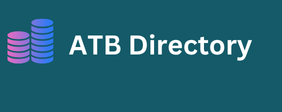总体而言,电子邮件营销是合法的,但必须遵守相关法律法规,特别是关于隐私保护和反垃圾邮件的规定。不同国家和地区的法律有所差异,以下是几项重要法规:
1. 美国《CAN-SPAM 法案》
《CAN-SPAM Act》(Controlling the Assault of Non-Solicited Pornography And Marketing Act,反垃圾邮件法)于2003年生效,是全球最具代表性的反垃圾 B2B电子邮件清单 邮件法规。该法规规定:
-
发送营销邮件必须包含真实的发件人信息和有效的回复地址;
-
邮件主题和内容不得具有欺骗性或误导性;
-
必须为收件人提供简便的“退订”机制;
-
发送人必须在收件人退订后30天内停 深入的关键词研究 止发送邮件。
违反《CAN-SPAM 法案》可能面临巨额罚款。
2. 欧盟《GDPR》(通用数据保护条例)
欧盟《GDPR》对个人数据保护提出了严格 电话号码 要求,影响了全球范围内的电子邮件营销:
-
发送营销邮件必须事先获得用户明确同意(opt-in);
-
明确告知用户数据使用目的和权利;
-
用户有权随时撤销同意和请求删除个人信息;
-
违规可能导致高额罚款,最高达企业全球年营业额的4%。
3. 中国《网络安全法》和相关规定
中国对电子邮件营销的监管主要涉及个人信息保护和反垃圾邮件:
-
个人信息的收集、使用必须告知用户并获得同意;
-
发送营销邮件需遵守《互联网电子邮件服务管理规定》,不得发送未经请求的广告邮件;
-
违规行为可能导致处罚或账号被封。

